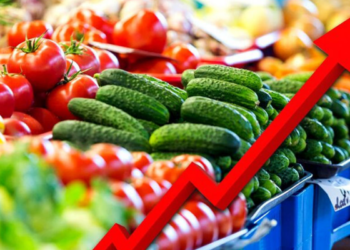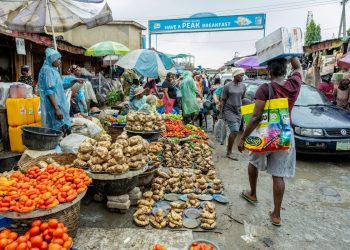Turkey grapples with soaring inflation as the annual rate climbs to 68.5% for March, surpassing February’s 67.1%, according to the latest report from the Turkish Statistical Institute released on Wednesday.
The monthly increase in consumer prices stood at 3.16%, driven by significant hikes in education, communication, and the hospitality sector, with month-on-month rises of 13%, 5.6%, and 3.9%, respectively.
On an annual basis, education witnessed the highest cost inflation at 104% year-on-year, followed by the hospitality industry at 95% and health at 80%.
Despite concerted efforts to curb inflation through interest rate adjustments, Turkey’s central bank raised the country’s key rate from 45% to 50% in late March.
Much of the recent inflationary pressure stems from a substantial hike in the minimum wage mandated by the Turkish government for 2024. The minimum wage doubled to 17,002 Turkish lira (around $530) per month in January compared to the previous year.
Economists anticipate further rate hikes will be necessary to combat inflation effectively.
Nicholas Farr, an Emerging Europe economist at Capital Economics in London, notes that while the March inflation uptick represents the smallest monthly increase in three months, it remains far from the single-digit inflation target policymakers aim to achieve.
He emphasizes the need for continued monetary tightening and suggests a more concerted effort to tighten fiscal policy to address the persistent inflationary pressures.
Turkey’s central bank has implemented eight consecutive interest rate hikes from June 2023 to January 2024, totaling a cumulative 3,650 basis points. After a pause in February, the bank resumed rate hikes in March, citing concerns over the inflation outlook.
With Turkey’s local elections concluded on March 31, analysts believe pushing ahead with tighter monetary policy may now be easier. The opposition party made significant gains in the elections, winning the country’s five largest cities and several rural areas, largely due to economic hardships faced by ordinary Turks.
President Recep Tayyip Erdogan’s reluctance to raise rates in the past, despite economic challenges, has been a point of contention. However, a new finance and central bank team appointed in May 2023 signaled a shift in policy direction, indicating greater independence for the central bank.
Nevertheless, Erdogan’s party’s loss in the local elections could introduce uncertainty into future economic policy decisions, analysts caution.









